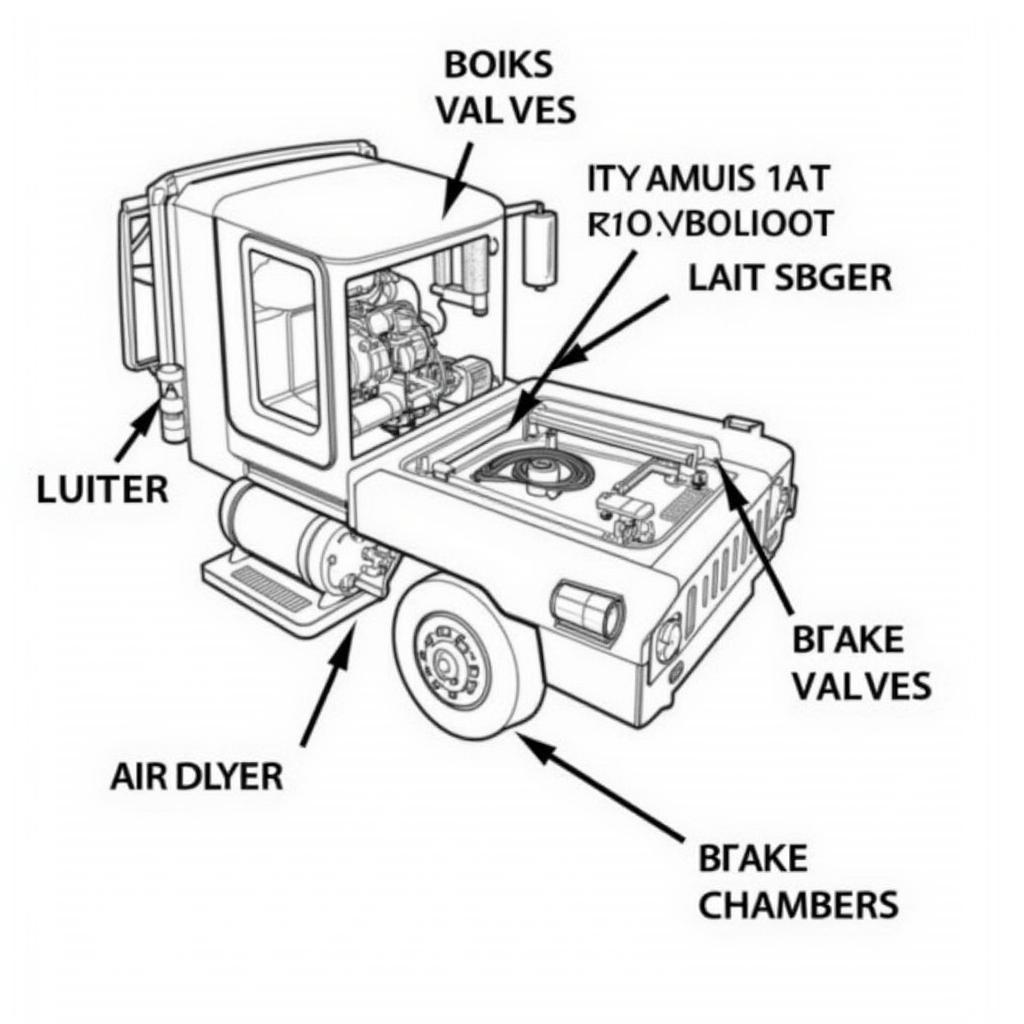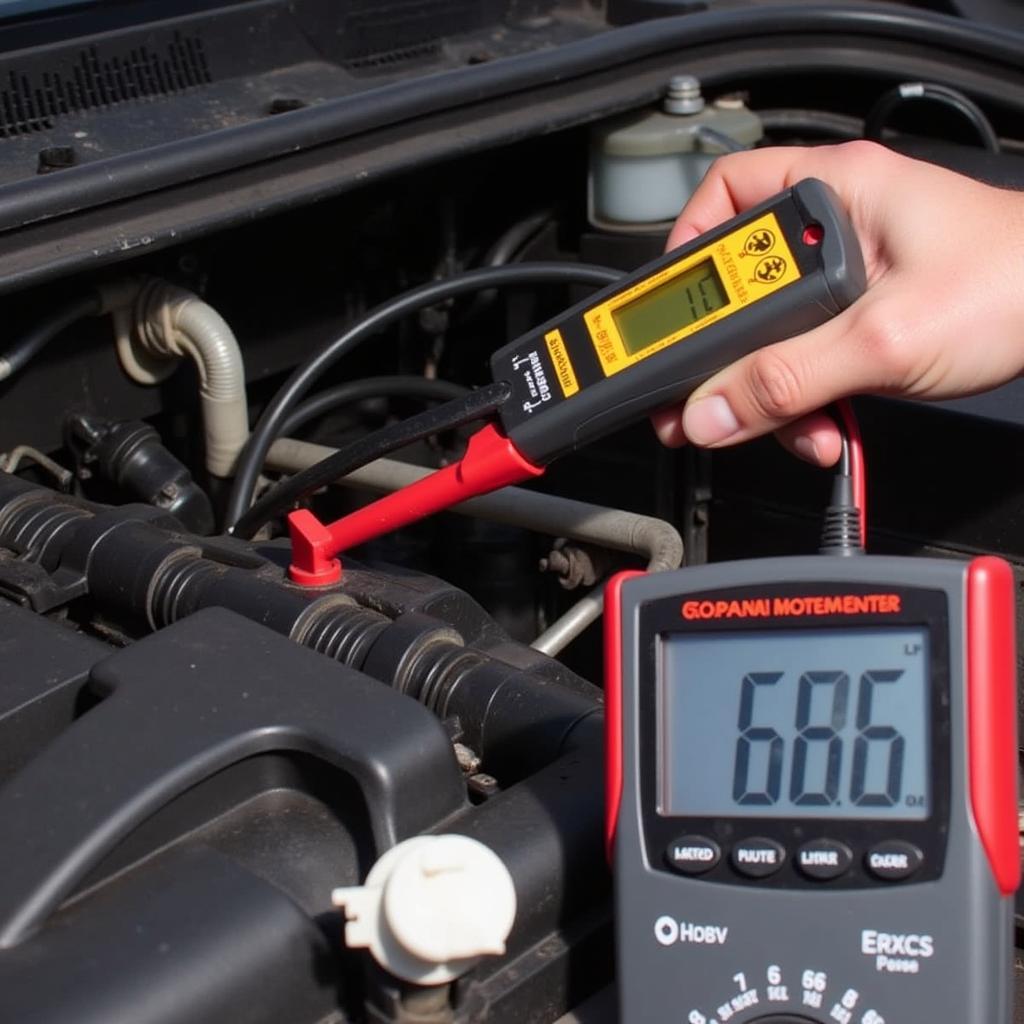When you see those warning lights on your Jeep’s dashboard – ABS, BAS, and ESP – it can be a bit alarming. You might be wondering, “What does this mean? Is my Jeep safe to drive?” Rest assured, you’re not alone in experiencing this. These warning lights often indicate a problem with your Jeep’s electronic stability control system, but it’s not always a serious issue. In this comprehensive guide, we’ll explore what these lights mean, why they might come on, and what you can do to get your Jeep back on the road.
Understanding the Warning Lights
- ABS (Anti-lock Braking System): This light indicates a problem with the system that prevents your wheels from locking up during braking.
- BAS (Brake Assist System): This light indicates a problem with the system that helps you brake harder and faster in emergency situations.
- ESP (Electronic Stability Program): This light indicates a problem with the system that helps you maintain control of your Jeep, especially during slippery conditions or sharp turns.
Common Causes of ABS, BAS, and ESP Warning Lights
There are several reasons why these lights might come on in your Jeep. Here are some of the most common:
- Faulty Sensor: Your Jeep’s stability control system relies on sensors to monitor wheel speed, steering angle, and other factors. A faulty sensor can trigger these warning lights.
- Low Brake Fluid: Insufficient brake fluid can affect the performance of your ABS and BAS systems, causing the warning lights to illuminate.
- Electrical Malfunction: Issues with your vehicle’s electrical system, such as loose connections or a faulty wiring harness, can impact the operation of your stability control system.
- Wheel Speed Sensor Problem: Wheel speed sensors play a crucial role in the ABS system. If one of these sensors malfunctions, it can trigger the ABS, BAS, and ESP warning lights.
- Tire Pressure Issues: Uneven tire pressure can affect the stability control system and trigger the warning lights.
- Faulty Control Module: The electronic stability control module itself might be faulty, leading to the warning lights.
What to Do When You See the Warning Lights
- Check Your Brake Fluid: First, check the brake fluid level. If it’s low, top it off. If the fluid is still low after topping it off, there might be a leak in your braking system.
- Inspect Your Tires: Ensure all four tires have adequate pressure and are in good condition.
- Scan for Trouble Codes: Use an OBD-II scanner to check for any error codes related to the ABS, BAS, or ESP systems. This will provide more insight into the problem.
- Have it Diagnosed by a Professional: If you can’t resolve the issue yourself, take your Jeep to a reputable mechanic for a thorough diagnosis.
Troubleshooting the ABS, BAS, and ESP Warning Lights
“My Jeep’s ABS, BAS, and ESP warning lights just came on. What should I do?”
“I’ve checked the brake fluid, tire pressure, and scanned for codes, but the warning lights are still on. Now what?”
If you’ve tried the basic troubleshooting steps and the warning lights remain on, you should take your Jeep to a qualified technician. They will have the necessary tools and expertise to properly diagnose and repair the problem.
Expert Insight
“It’s important to address these warning lights promptly,” says John Smith, a certified automotive technician. “Ignoring them can lead to more serious issues down the road, potentially compromising your safety.”
Frequently Asked Questions
Q: Can I drive my Jeep with these warning lights on?
A: It’s generally safe to drive short distances with these warning lights on, but it’s best to have them checked by a professional as soon as possible.
Q: Is it dangerous to drive with the ESP light on?
A: While driving with the ESP light on is generally safe, it means your vehicle’s stability control system is not functioning properly. In slippery conditions or during sharp turns, you may have a reduced level of safety.
Q: What is the average cost to fix an ABS, BAS, or ESP problem?
A: The cost of repairs can vary depending on the specific issue and the make and model of your Jeep. Costs can range from a few hundred dollars for a simple sensor replacement to a few thousand dollars for more complex repairs.
Q: How often should I have my ABS system inspected?
A: It’s generally recommended to have your ABS system inspected as part of your regular vehicle maintenance schedule.
Q: Can I reset the ABS, BAS, and ESP warning lights myself?
A: While you can sometimes clear the warning lights using an OBD-II scanner, it’s essential to address the underlying problem to prevent the lights from returning.
Getting Your Jeep Back in Top Shape
Don’t let ABS, BAS, and ESP warning lights on your Jeep bring your adventures to a halt. By understanding the potential causes, taking appropriate troubleshooting steps, and seeking professional help when needed, you can restore your Jeep’s stability control system and enjoy a safe and reliable ride.


